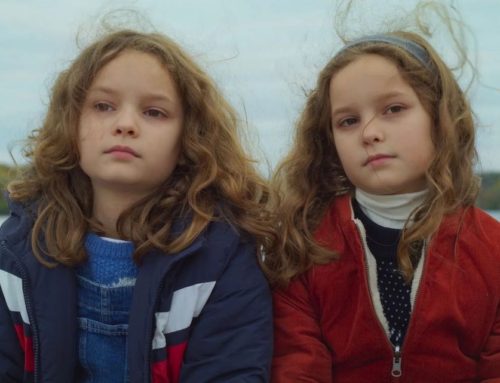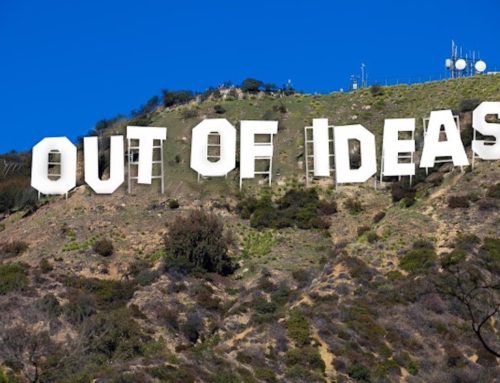Guido Anselmi, the main character in 8½, has often been described as Fellini’s alter-ego. The director’s eighth production (hence the name of the film) is a dreamy and poetic account of a filmmaker’s creative block, and it is also, arguably, a journey into his personality. This is quite accurate in that most of Fellini’s films are heavily autobiographical, referring to ‘his own world’ as Martin Scorsese, an enthusiastic Fellini-lover, has stated. His world shines through in such a way that, in his movies, recurring references, common characters, and similar sequences give the viewer the illusion of being thrown into his head, where a symphony by Nino Rota (Fellini’s film composer) is playing in the background. Arguably, the ‘Felliniesque’ style – with its dreamy, absurd, grotesque sequences – stands out in this movie more than in any other. But 8½ can hardly be narrowed down to being just autobiographical. It is also a film about the possibility of living one’s own life in total self-acceptance and the potential ways of representing it.
8½ is a film about art and, more specifically, the most transient type of art: cinema. Can art have the power to answer one’s existential questions? This is one of the issues which, weaved into the movie like countless threads in a piece of fabric, all emerging time and time again to its surface. The film is disrupted by so many dreamy sequences, sensuous images, and cascades of memories which all invest the viewer, making it surprisingly difficult to follow the plotline. In fact, this seems to be of little importance. After all, this is what the incapacity of making a film ultimately consists of: all the hopes, fears, worries, and frustrations that come with it. Thus, what can we expect? The non-linearity of the plotline is physiological.
Guido, who is played by Marcello Mastroianni, is a complex character. His apparent indifference towards the film he is trying to make, as well as towards the people that surround him is, at times, irritating. Many different characters gravitate around him: his producer, the actors he has hired, his associates, friends. He, however, seems to give them little notice when they obsessively ask for clarifications on his film, and he childishly tries to evade their questions by turning from one to the other with dexterous moves. He gets distracted by small details which become springboards for overwhelming sequences that mix dreams with memories. For instance, when he’s sitting at the table with his film crew, while lofty discussions about Catholicism and socialism are taking place, he gets distracted by the presence of his mistress, Carla (Sandra Milo). Or again, in his private talk with the Cardinal, a silent and auratic figure who whispers enigmatic words, he turns to look at the legs of a woman who passes by, which recall to him the carnal image of the prostitute Saraghina, a towering memory from his adolescence.
Guido wants to make an ‘honest film’, but he has confused ideas about it; this is probably where the mirror game between him and Fellini gets more explicit. His film will be about life and he wants every part of it to fit in: dreams, memories, hopes, his most extreme fantasies and delusions. However, his inability to proceed with the film seems to be mirrored by his dissatisfaction with his present life. Where does this incapacity and dissatisfaction come from? Perhaps, as Claudia Cardinali – a redemptive character – repeats three times, he does not know how to love. This seems true, from his incredibly unfaithful relationship with his wife, Luisa (Anouk Aimee), to his equally unromantic relationship with his mistress and the many women who surround him, as well as his parents. He is a liar, as his wife tells him many times, and a liar of the worst kind, as he believes in his lies, so he is continuously drawn to commit the same mistakes again and again.
Is Guido incapable of loving? Or of choosing? Is he just a coward? It would be easy to agree with all of these accusations and dismiss him as a man who, after all, is incapable of living his own – very privileged – life. However, perhaps if we step down from our throne of morally strict judgements, we can come as near to him as to acknowledge that, in the end, he is just brutally honest. And perhaps it is our own dishonesty that makes us so judgemental. He wants everything to gravitate around him, as in the harem scene, in which he imagines all the women of his life living together, waiting for him and on him. In his childish honesty, he unveils his psyche and leaves it wide open in front of our eyes. After all, are we so different from him? Maybe not so much, save that we try relentlessly to cover our most scabrous desires with a mask of compromise which is compulsory to live in – not just our – but any society. That is why Guido’s attitude seems so brutal to our eyes, as we are much more likely to endorse Luisa’s point of view. ‘Happiness’, he insists, ‘consists of being able to tell the truth without hurting anyone’. The impossibility of his happiness revealed by this statement is the other face of total self-acceptance. In this sense, Guido’s movie is, as Daumier, his vigorous critic, tells him, an attempt to ‘string together the tattered pieces of your life. Your vague memories, the faces of people that you were never able to love’.
Guido’s narcissistic and childish attitude is not justifiable in the real world, and perhaps that is why the movie’s end is so hopeless: the circus-like dance in which all characters take part is his ultimate fantasy. Instead, the only reality in which he can truly be himself is his dreams. His dreams are the only place in which he can fulfil his desires and be the child adored by the nurturers in the crumbling house of his childhood, where a magical and meaningless phrase resounds: ‘asa nisi masa’. This is the only reality in which he can say, as he does in the last part of the movie, ‘This confusion is … me, not as I’d like to be, but as I am. Accept me for what I am, Luisa, if you want me.’
At this point, though, one is not even sure of what is fiction and what is reality. The dreamy sequences that disrupt the film’s narrative attract the viewer like magnetic abysses, the real fades into the oneiric. His film, therefore, becomes the dream through which he can totally accept himself and love all the characters of his life. It is the work of art claiming to be reality which makes reality nothing but its own – imperfect – imitation. Indeed, once 8 ½ ends and we find ourselves in a black room sitting on velvet chairs with Nino Rota’s music playing in the background, we might feel weirdly awakened and, perhaps, realize that cinema itself is nothing but a dream.





